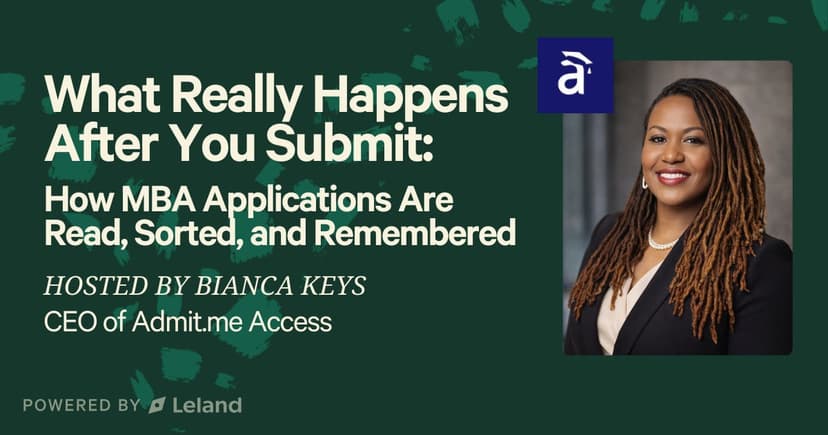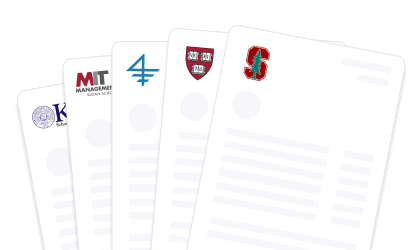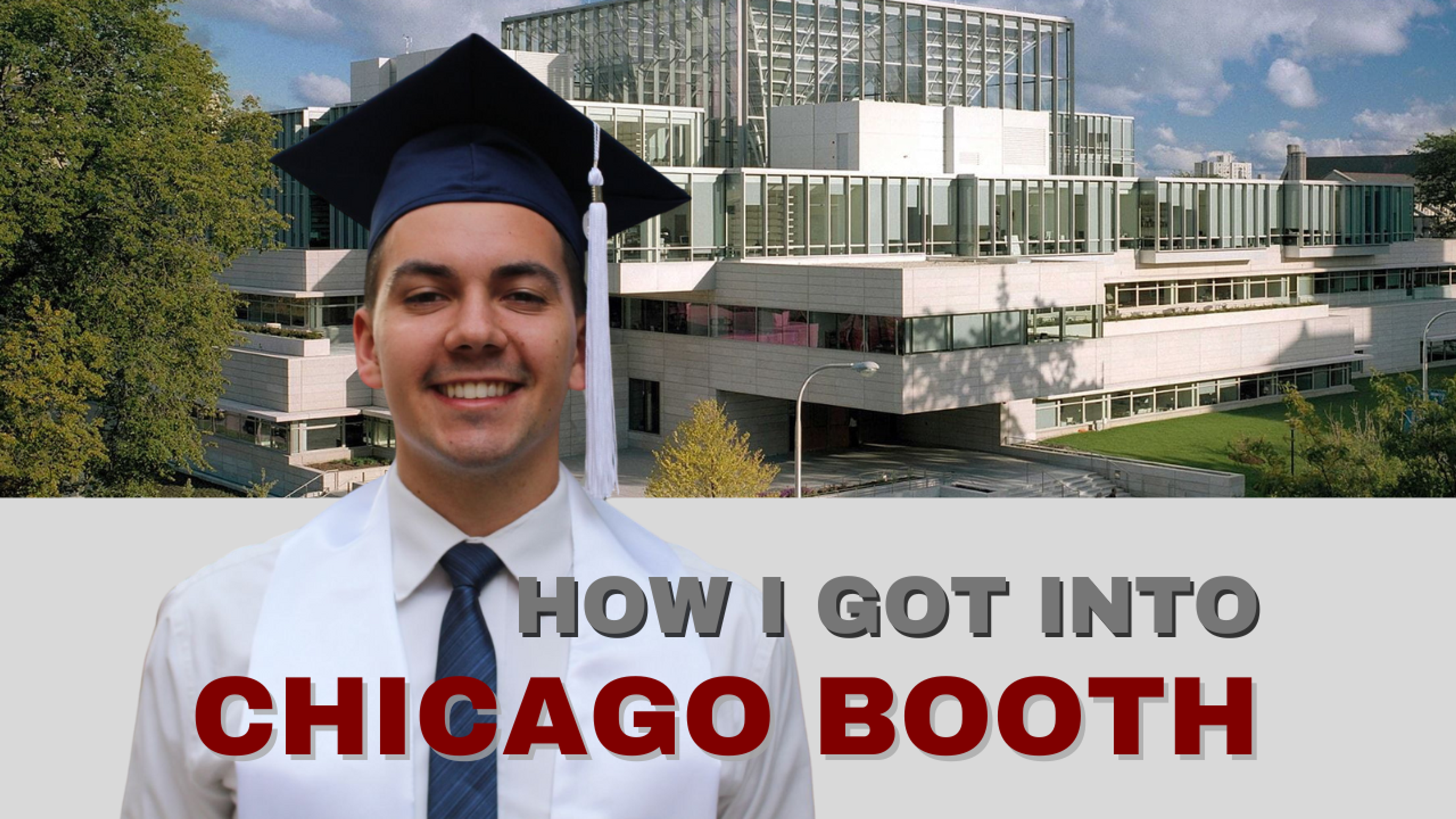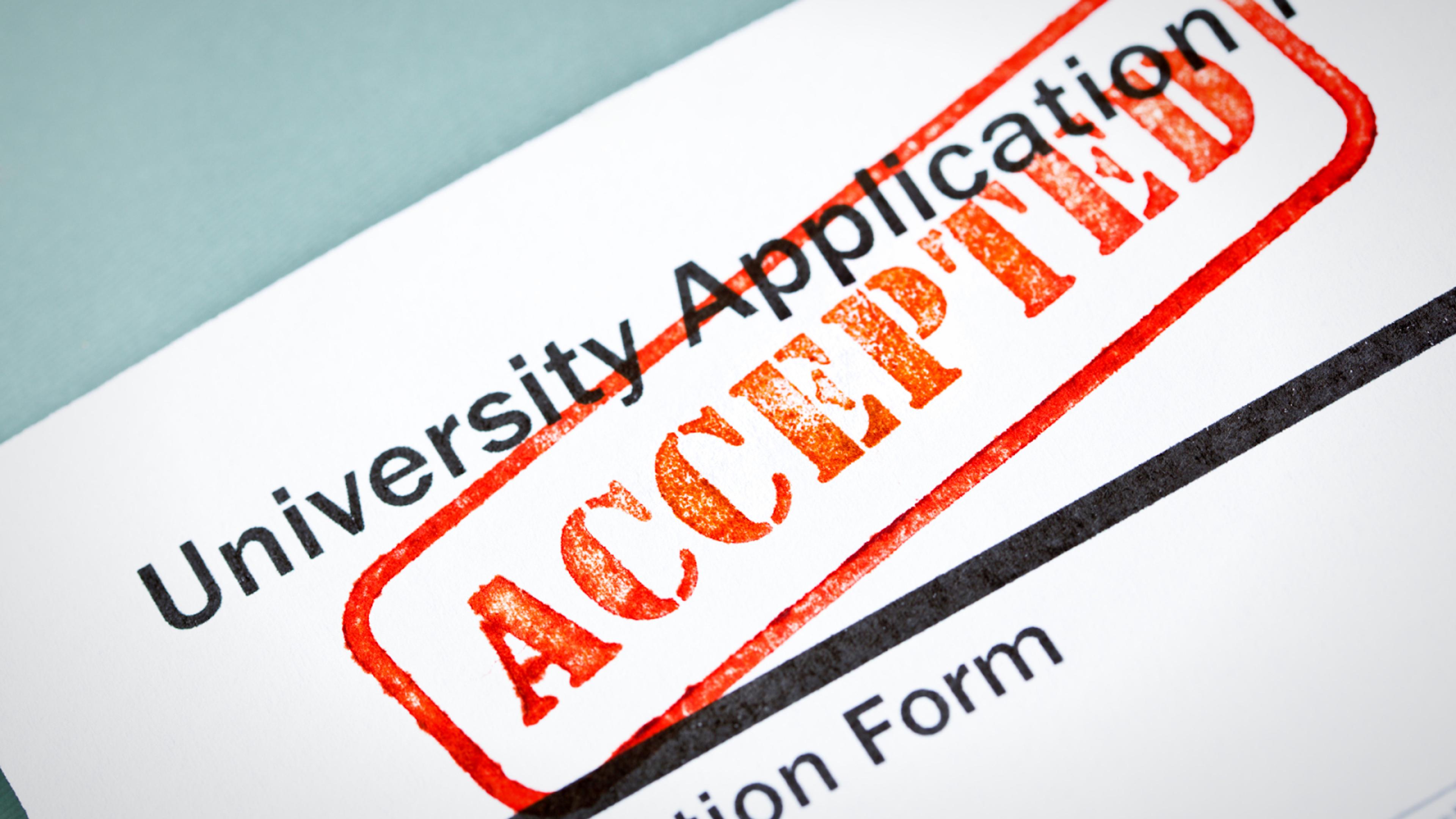Top 10 Deferred MBA (2+2) Programs in the US (2026)
Aiming for an MBA, even while you're still in college? Perfect, learn all about deferred admission MBA programs like HBS 2+2 and receive key insights into the application process.
Posted January 8, 2026

Join a free event
Learn from top coaches and industry experts in live, interactive sessions you can join for free.
Table of Contents
Deferred MBA programs are the ultimate opportunity for ambitious college students. Through these programs, you are able to take your standardized test and submit your application while still a senior. Acceptance means securing your place at a top school and having the next 2-5 years to pursue what you want with the safety net of an MBA waiting for you. Applicant pools are smaller (though still very competitive), and the application process is more about proving your potential than showing your accomplishments thus far.
Intrigued? You should be! In this guide, we’ll talk you through what the best deferred MBA programs are, who exactly they’re looking for, and what it takes to get in, along with their class profiles and admission stats. Let’s dive in!
What is a Deferred MBA Program?
In September 2008, Harvard Business School (HBS) accepted its first class of “2+2” applicants. These students applied to Harvard Business School's MBA program, but with one major variation: instead of having full-time work experience under their belts, they were college seniors who would spend the next 2-5 years in the workforce before returning to campus to begin their MBA.
Around the same time, Stanford also made the decision to launch its own deferred admissions program: candidates could apply, usually in their final years of study in college or graduate school, earn admission, then defer enrollment for two to four years after graduating.
Harvard and Stanford's decision to launch this particular type of graduate degree largely put the deferred MBA on the map, though they certainly weren't the first – Yale had actually launched its Yale Silver Scholars program seven years earlier, in 2001.
Deferred programs are for those applicants who know they want to attend business school but have yet to graduate from college. They're forward-thinking, know they want to earn an MBA, and want to lock in their spot before they leave their undergraduate program. Top universities admit a select cohort of deferred applicants, knowing that these individuals will enter the workforce and pick up somewhere between two and five years of full-time work experience before actually enrolling. Upon enrollment, these deferred admits are part of the same MBA cohort as those candidates admitted through the traditional application process.
For schools, it's a great way to snap up candidates early, particularly those whom the school might not be able to entice later in their careers. (More on this below.) For candidates, it's a way to secure a spot at a top institution's business school before you graduate, thus giving yourself time, flexibility, and security as you start to pursue a career.
Learn more about the different types of MBA programs in our article, The Different Types of MBA Programs—and Which One is Right for You.
How are Deferred MBA Programs Different From Traditional Programs?
MBA candidates who apply through the traditional application process usually have already earned between two and five years of work experience. With the deferred programs, you're able to apply and secure your spot as a college senior before entering the workforce. Even better, it’s still a full-time MBA program! You’ll get everything out of the program that traditional applicants/candidates get, and you are eligible for the same merit-based scholarships.
Deferred applicants also have access to a lot of perks while they wait to matriculate into a future class – career development support, exclusive events, access to student and alumni communities, and more.
Application deadlines typically fall between March and May of your senior year, so if everything goes well, you'll have earned a seat at a top MBA program before the summer after your senior year. In two to five years, depending on your deferral period, you will join your MBA program, along with everyone else admitted into the same full-time MBA program.
Applicants complete roughly the same requirements as for a traditional MBA program–essays, letters of recommendation, a resume, etc. The approach changes slightly, however, because of the lack of full-time experience. The deferred admissions committees have a lot less to go on, so the application really has to show potential loud and clear.
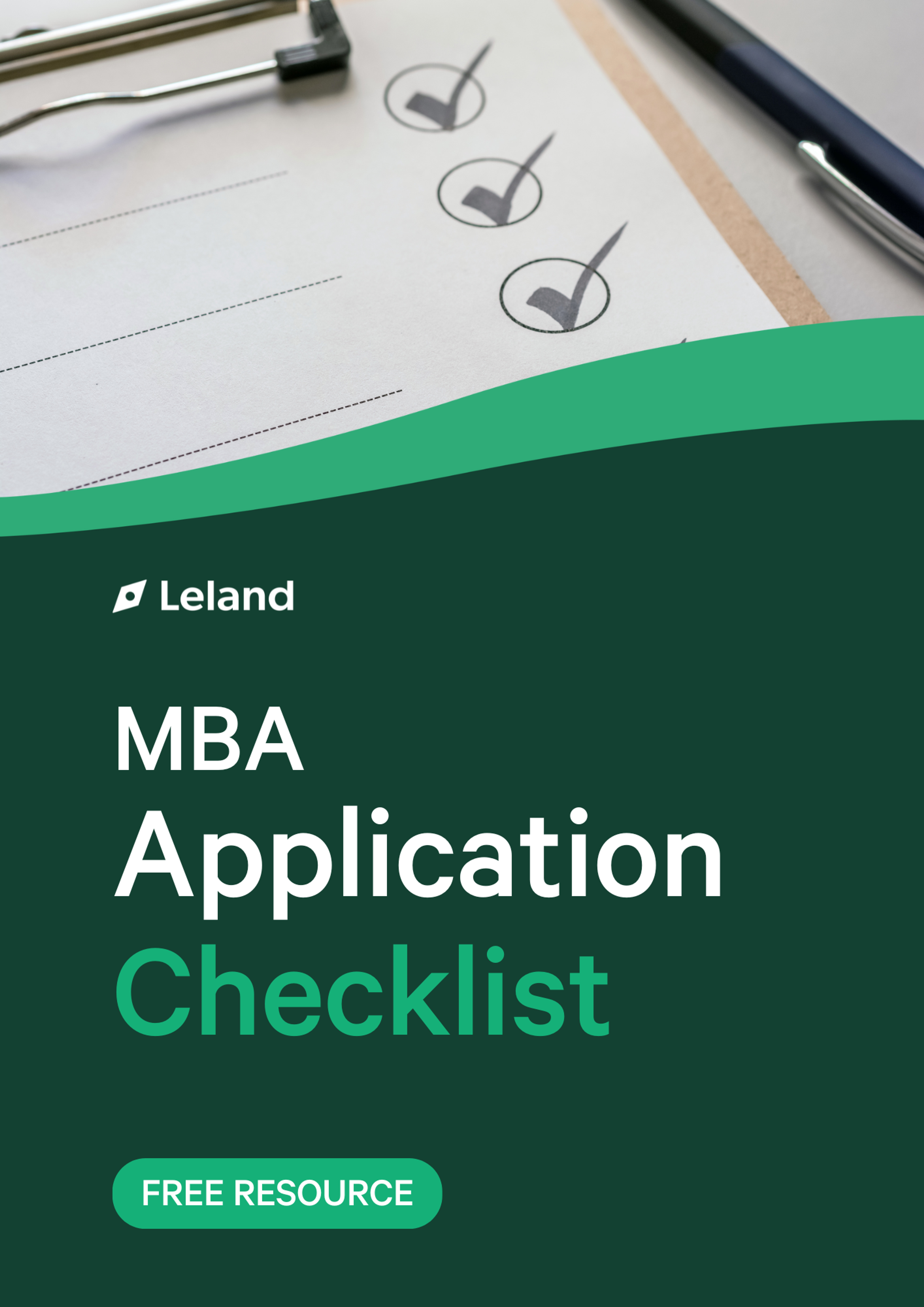
MBA Application Checklist
Stay on track with your MBA apps. Get a full customizable checklist of what to do, when, and how to do it well.
Who Are Deferred MBA Programs Looking For?
Broadly speaking, the top business schools are looking for the same qualifications in their deferred admits as their traditional applicants: leadership, razor-sharp intelligence, and a promising career trajectory.
Of course, there are significant variations. The good news is that each school signals quite clearly what they're looking for in their applicants, which we'll cover more below. At a high level, though, deferred MBA programs are selected from a pool of undergraduates (and, in some cases, grad students). Since these applicants won't have work experience, they need to stand out and shine on the basis of their collegiate internships, GMAT / GRE scores, GPA, and the rigor and excellence of their undergraduate degree studies. Essays and letters of recommendation are also particularly important: the resume of a deferred applicant is not as fleshed out as that of the traditional applicant, so the other parts of the application take on extra significance.
As far as criteria go, deferred enrollment programs are looking for applicants from all different academic disciplines. Yes, they admit those who come from an economic background — finance, business, and economics majors — but they also, and increasingly, welcome those with engineering, STEM, and humanities undergraduate degrees. Outside of the traditional paths, you may be going into the nonprofit sector, government/law school, or even medical school, and you’re still eligible to apply for deferred MBA programs. The important thing is that you can answer two important questions: why an MBA and why now/why deferred? The flavor of your bachelor’s degree and career path are not so much the consideration as the excellence you showed in your academic transcripts, extracurricular activities, and core curriculum.
Leland is here to make your application stand out, from the essay to the interview, and beyond.
Check out our Comprehensive MBA Application Timeline for a look at deadlines and how to get organized. Already working on your application? Here is our guide on writing a powerful MBA essay, a key aspect of the application and often one of the most difficult parts for students.
Core Groups Deferred MBA Programs Are Looking For
In addition to these broad-stroke considerations, deferred MBA programs show preference in particular for the following types of candidates:
- Students on clear, high-potential paths
- Students who (of course) fit the flavor and culture of that particular school
- Students from diverse backgrounds, or with unique stories and plans that help them stand out
- Students from lower socioeconomic backgrounds (first-generation college graduates, lower-income families, etc)
- Students heading into operating roles (in tech, retail, etc)
- Students heading into technical roles (industrial tech, manufacturing management, etc)
- Students starting a business or joining a startup
It's worth noting that HBS, in particular, has signaled a strong preference for applicants from the latter four categories. Applicants from these groups are less likely to consider applying for an MBA in the future; schools like HBS want to capture them early, before they get too immersed in the workforce and decide they don’t need an MBA.
Get Expert Help on Your Application
The best way to have a deferred MBA application that stands out from the crowd and best portrays your story is to work with an expert coach. They have already gone through the process themselves and helped tons of others do so too, so they really know what it takes to get into a top program. Here are some of our most popular MBA coaches, browse all here or get personalized recommendations.
- Claire R.: GSB/HBS Deferred MBA Admit, Stanford Knight-Hennessy Scholar, Ex-Nike/Bain
- Timothy F.: Former M7 Admissions Committee, Booth MBA, 150+ M7 Admits, Ex-BCG Project Leader
- Geri T.: Former HBS AdCom & Founder of the HBS 2+2 Program, Professional Admissions Coach
Read more here: How to Stand Out as a Deferred MBA Applicant—From a GSB/HBS Admit and The Deferred MBA Process and Top Programs: An Expert Guide
The Top 10 Deferred MBA Programs
All right — now that we've covered what deferred MBA programs are and what types of candidates they're looking for, let's take a look at the top 10 deferred MBA programs. We'll dive into each program so that you can get a good idea of what programs are out there, and make an informed decision about where you'd like to apply.
Deferred MBA Program Deadlines (2025)
| School | Deferred Deadline |
|---|---|
| Stanford GSB: Deferred Enrollment Program | Can apply in any round, most choose R3 (April 8, 2025) |
| Harvard Business School: 2+2 Program | April 23, 2025 |
| UPenn Wharton: Advance Access Program | April 23, 2025 |
| Northwestern Kellogg: Future Leaders Program | April 23, 2025 |
| Chicago Booth: Scholars Deferred Program | April 29, 2025 |
| MIT Sloan: Early Admission MBA Program | April 18, 2025 |
| Columbia Business School: Deferred Enrollment Program | April 15, 2025 |
| UVA Darden: Future Year Scholars Program | Apr. 7, 2025 (R2: Aug. 4, 2025) |
| UC Berkeley Haas: Advance Access Program | April 24, 2025 |
| Yale SOM: Silver Scholars Program | Can apply in any round, most choose R3 (April 8, 2025) |
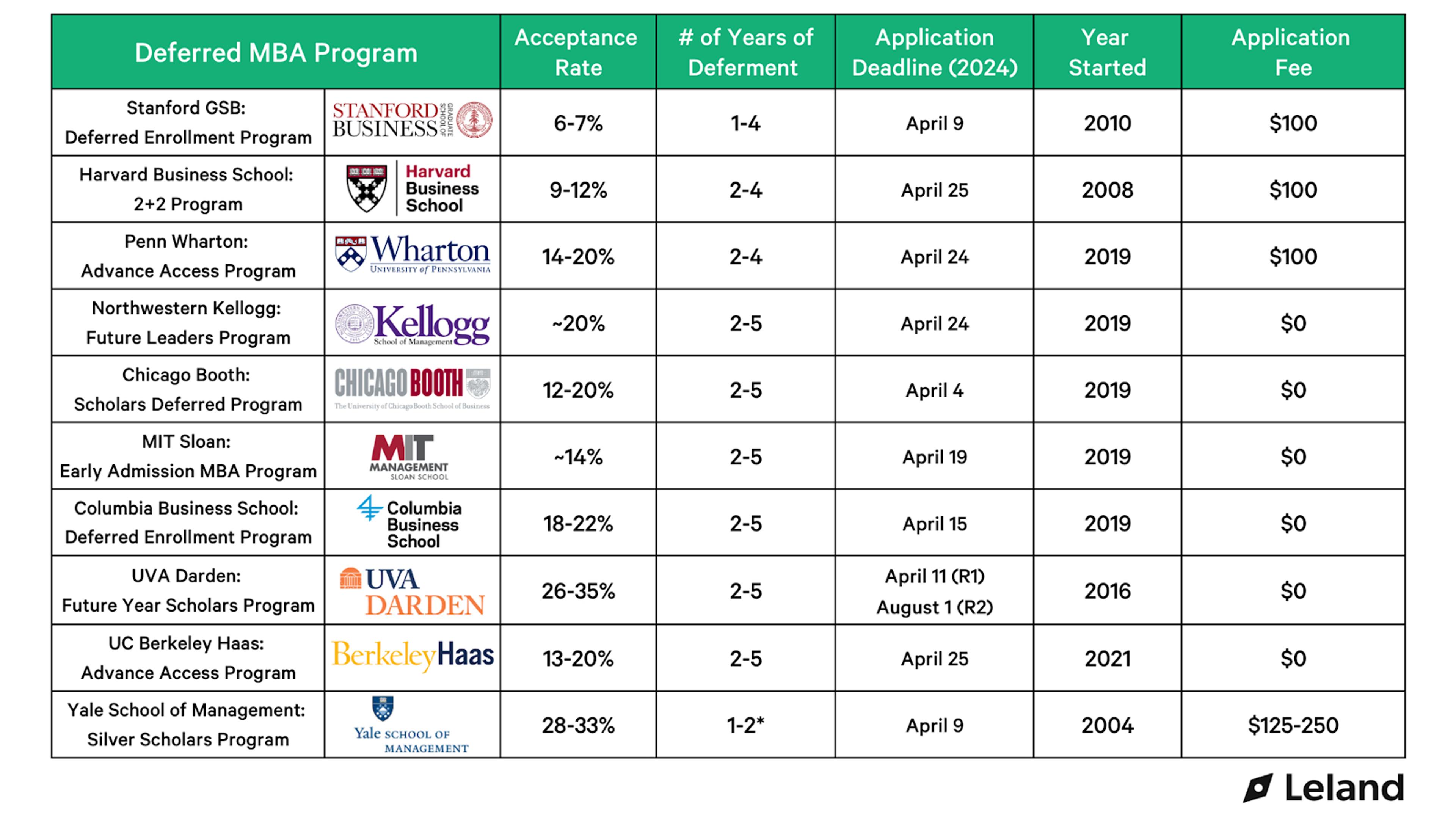
Stanford GSB Deferred Enrollment
- Deadline: Can apply to any round (most will apply to R3 on April 8, 2025)
- Emphasis: Technology, entrepreneurship
- Acceptance Rate: 6-7%
- Application Fee: $100
Ranked first in US News’ 2022 report on top business schools, many think of Stanford as the place to go. With its emphasis on technology and entrepreneurship, it’s a magnet for those interested in the increasingly popular startup world and reaps the benefit of its proximity to Silicon Valley. Many students are drawn to its highly collaborative, down-to-earth culture, beautiful campus, and fine Palo Alto weather. However, at ~6.9%, it has the lowest acceptance rate in the country, so keep in mind that you’ll need a very competitive application to apply here. (PS - Leland can help you stand out. Check out our coaches with Stanford MBA experience here.)
Stanford GSB Class Profile
| Total Students | 431 |
| Average GPA | 3.77 |
| Average GMAT | 738 |
| Average GRE | Verbal: 164, Quant: 164 |
| Average Work Experience | 5 years |
| Countries Represented | 55 |
*Stats for the full-time class, which includes the deferred admits. Stanford doesn’t provide deferred-only admit data.
Stanford GSB Deferred Enrollment Eligibility
The program is open to college seniors and students in their final year of a bachelor’s degree or joint graduate/bachelor’s program, with their degree conferred between October 1, 2024, and September 30, 2025.
Additionally, graduate students who began a master’s degree, PhD, law, or medical degree immediately following an undergraduate or undergraduate/graduate program—and who did not work full-time before starting the graduate program—are eligible if that degree will be conferred within the same timeframe.
Students admitted to Stanford GSB’s Deferred Enrollment program are typically allowed to work for up to four years before beginning MBA coursework. In some cases, the admissions committee may offer a different deferral period than the one originally requested.
Stanford GSB Deferred Essays
Applicants to the Stanford GSB Deferred Enrollment Program are required to write two personal essays, allowing them to express their values, passions, aspirations, and reasons for pursuing an MBA. These essays are the same as those for traditional applicants.
- What Matters Most and Why?
- Reflect deeply and write from the heart about what matters most to you. Once you've identified what matters most, explain why it holds such significance for you. Consider what makes this important, and how your perspectives have been shaped by people, insights, or experiences.
- Why Stanford?
- Describe your aspirations and how your Stanford GSB experience will help you realize them.
Combined, both essays may not exceed 1,050 words, with a recommended limit of up to 650 words for Essay A and up to 400 words for Essay B. It's important to write authentically and concisely, focusing on conveying your genuine voice and motivations.
Here is our overview of the GSB deferred program as well as our guide to an MBA from GSB: Stanford GSB Deferred Enrollment Program and Stanford GSB—MBA Program and Application Overview.
How to Get Into Stanford GSB Deferred: Admit Story
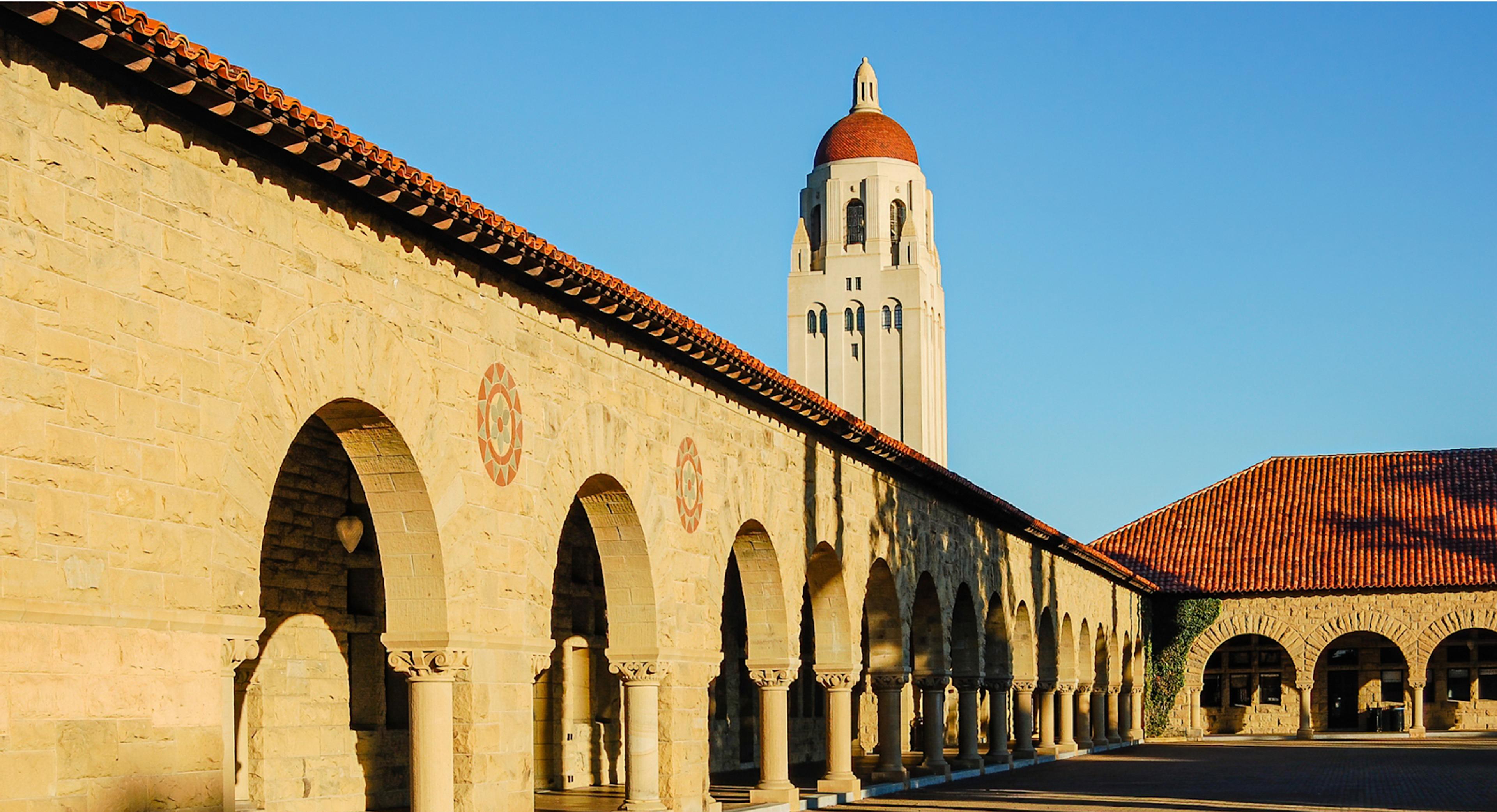
Harvard Business School 2+2 Program
- Deadline: April 23, 2025
- Emphasis: Balanced, contemporary
- Acceptance Rate: ~9–12%
- Application Fee: $100
One of the few programs with existing and accessible data on their deferred enrollment acceptance rates, Harvard Business School’s 2+2 Program reports 1,403 applicants with only 9% admitted for its class of 2023, which is a slightly smaller acceptance rate than its general acceptance rate. There is a reason for the high demand: HBS is great for those who want a more balanced education, and it offers plentiful extracurricular/club opportunities, strong network building, and an emphasis on section unity. Its more formal classroom format and higher competition may or may not be a good fit for you.
Harvard Business School 2+2 Class Profile
| Total Students | ~103 |
| Total Applicants | ~1,500–1,600 |
| Average GPA | 3.79 |
| Median GMAT | 740 |
| Average Work Experience | 2-4 years |
| Countries Represented | 17 |
HBS 2+2 Eligibility
To be eligible for Harvard Business School’s 2+2 Program, applicants must be in their final year of study at the time of application, with graduation scheduled between October 1, 2024, and September 30, 2025.
The program is open to:
- Undergraduates, including those in joint bachelor’s/master’s degree programs
- Master’s degree students who enrolled directly after undergrad and have not held full-time work positions (internships and co-ops are allowed)
The key requirement: You must be applying during your final year of academic study, before entering the full-time workforce.
HBS 2+2 Essays
The Harvard Business School 2+2 program changed its application essays for the first time in many years in the 2024-2025 application cycle. The prompts, each with a limit of 300 words, are now different than those for the full-time program:
- Personal Essays: Applicants are required to choose two out of three prompts…
- Experiences and Leadership: How have your experiences shaped who you are, how you lead, and how you will contribute at HBS?
- Intellectual Influences: What intellectual experiences have influenced your approach to learning and have led you to pursue an MBA?
- Community Engagement: What communities have you been engaged with that have defined how you invest in others?
- Career Essay: Applicants must respond to the following prompt:
- How do the career plans you shared in the Career Plans section of the application fit into your current long-term career vision? What skills and/or professional experiences do you hope to obtain in the deferral period that will help build the foundation for your post-MBA career?
See our guides for the HBS 2+2 application here:
- An Overview of the HBS 2+2 Program
- Harvard Business School—MBA Program and Application Overview
- How to Ace Your HBS 2+2 Interview
Wharton Moelis Advance Access Program
- Deadline: April 23, 2025
- Emphasis: Finance, leadership
- Acceptance Rate (for all MBA applicants): 14-20%
- Application Fee: $100
With triple the acceptance rate of Stanford GSB, Wharton still ranked second on US News’ 2022 business school list. The Wharton MBA carries a powerful badge and brand, especially internationally. This Pennsylvania school boasts a very social and supportive atmosphere, and the Wharton community is a good fit for prospective students looking to specialize in finance. 2020 was the first year Wharton opened up the Moelis Advance Access Program to non-U Penn grads, so it's still very fresh.
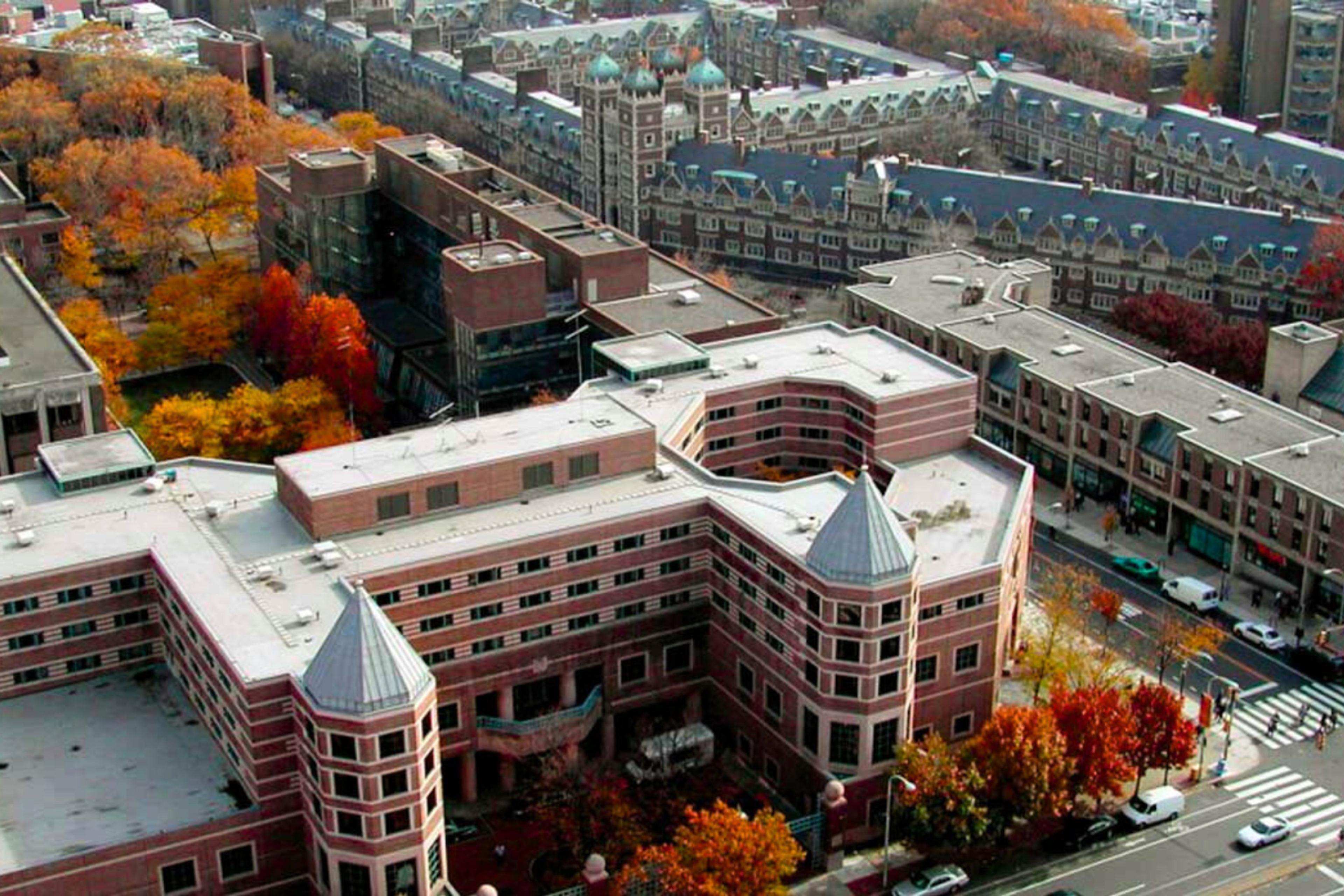
Wharton Advance Access Class Profile
| Total Students | 118 |
| Average GPA | 3.79 |
| Average GMAT | 741 |
| Median GRE | Verbal: 161.7; Quant: 163.6 |
| Average Work Experience | 5 Years |
| Countries Represented | 22 |
Wharton Advanced Access Eligibility
To be eligible for the Wharton Moelis Advance Access Program, applicants must apply during their senior year of undergraduate studies or in the final year of their master’s degree program if they enrolled immediately after completing their undergraduate studies.
Students who receive offers of admission to the program may work for two to four years before coming back to Wharton’s full-time MBA program.
Wharton Advanced Access Essays
First-time applicants must respond to two essay prompts, regardless of whether they are a traditional or deferred applicant.
- How do you plan to use the Wharton MBA program to help you achieve your future professional goals? You might consider your past experience, short and long-term goals, and resources available at Wharton. (500 words)
- Taking into consideration your background – personal, professional, and/or academic – how do you plan to make specific, meaningful contributions to the Wharton community? (400 words)
- Optional Essay: Please use this space to share any additional information about yourself that cannot be found elsewhere in your application and that you would like to share with the Admissions Committee. This space can also be used to address any extenuating circumstances (e.g., unexplained gaps in work experience, choice of recommenders, inconsistent or questionable academic performance, areas of weakness, etc.) that you would like the Admissions Committee to consider. (500 words)
See our Wharton Deferred School Hub at Wharton Moelis Advance Access and our full Wharton hub at The Wharton School—MBA Program and Application Overview. If you’re working on the Wharton application right now, read our Guide to the Wharton Essays.
Kellogg Future Leaders Deferred MBA
- Deadline: April 23, 2025
- Emphasis:
- Acceptance Rate (all MBA applicants): ~20%
- Application Fee: None
Northwestern’s No. 4–5 U.S. News–ranked Kellogg School is known for its collaborative, social environment both in and out of the classroom, and that extends to the Future Leaders (KFL) deferred MBA program. KFL admits students in their final year of undergraduate or master’s programs, allowing them to defer enrollment for 2–5 years before completing the traditional MBA.
Kellogg also offers a highly flexible core curriculum, including the option to follow a one-year MBA track. The school reports strong student satisfaction, with current KFL students highlighting their positive overall experience.
Kellogg MBA Class Profile
| Total Students | 529 |
| Average GPA | 3.7 |
| Average GMAT | 731 |
| Median GRE | Verbal: 162; Quant: 163 |
| Average Work Experience | 5 Years |
*Stats for the full-time class, which includes the deferred admits.
Kellogg Deferred MBA Eligibility
Students who are graduating between October 1, 2024, and September 30, 2025, are eligible to apply for the Kellogg Future Leaders Deferred MBA Program.
Eligible applicants include Undergraduates in their final year, regardless of major and Master’s students who enrolled immediately after undergrad and have no full-time work experience in between
Once admitted, students can defer enrollment for 2 to 5 years and later matriculate into any of Kellogg’s full-time MBA programs, including the One-Year, Two-Year, MMM, or JD-MBA options.
Kellogg Deferred MBA Essays
Applicants are required to address several essay prompts – both long- and short-form – that offer insights into their leadership experiences, values, and future plans.
- Applicants are asked to provide a recent example where they have demonstrated leadership and created value. (This essay, with a maximum of 450 words, prompts candidates to reflect on challenges faced, lessons learned, and the impact of their leadership actions.)
- Candidates are prompted to discuss the values that are important to them and how these values have influenced their lives and work. (With a maximum of 450 words, this essay invites applicants to delve into their personal principles and their role in shaping their decisions and actions.)
- Applicants are required to outline how they intend to spend the next several years prior to joining Kellogg, along with the motivations behind their short- and long-term goals. (This essay has a maximum of 250 words and encourages candidates to articulate their aspirations and the driving forces behind them.)
Short-Answer Questions:
- What drives your interest in these short- and long-term goals? (240 characters)
- What is your desired position after Kellogg? (150 characters)
- What is your long-term career goal? (150 characters)
See our Kellogg Deferred School Hub at Kellogg Future Leaders Program and our full Kellogg hub at the Kellogg School of Management—MBA Program and Application Overview.

Chicago Booth Scholars Deferred MBA
- Deadline: April 29, 2025 (11:59 p.m. CT)
- Decision Notification: July 1, 2025
- Emphasis: Research, quantitative analysis, finance, leadership, and flexibility in coursework
- Acceptance Rate (all MBA applicants): ~12–20% (similar to full-time MBA)
- Application Fee: None (fee waived for Scholars applicants)
Chicago Booth placed third in the US News ranking. Even though it has an exceptionally robust academic offering, Booth also provides flexibility in coursework and offers many opportunities for leadership and involvement in clubs. This commuter school is known for its Midwest friendliness, which may make you feel right at home. The Chicago Booth Scholars Program, like Wharton's Advanced Access Program, is quite fresh, so it's still growing and developing, and very much worth a look.
Chicago Booth MBA Class Profile
| Total Students | 637 |
| Average GPA | 3.6 |
| Median GMAT | 730 |
| Average GRE | Verbal: 162; Quant: 163 |
| Work Experience | 5 Years |
| Countries Represented | 54 |
*Stats for the full-time class, which includes the deferred admits.
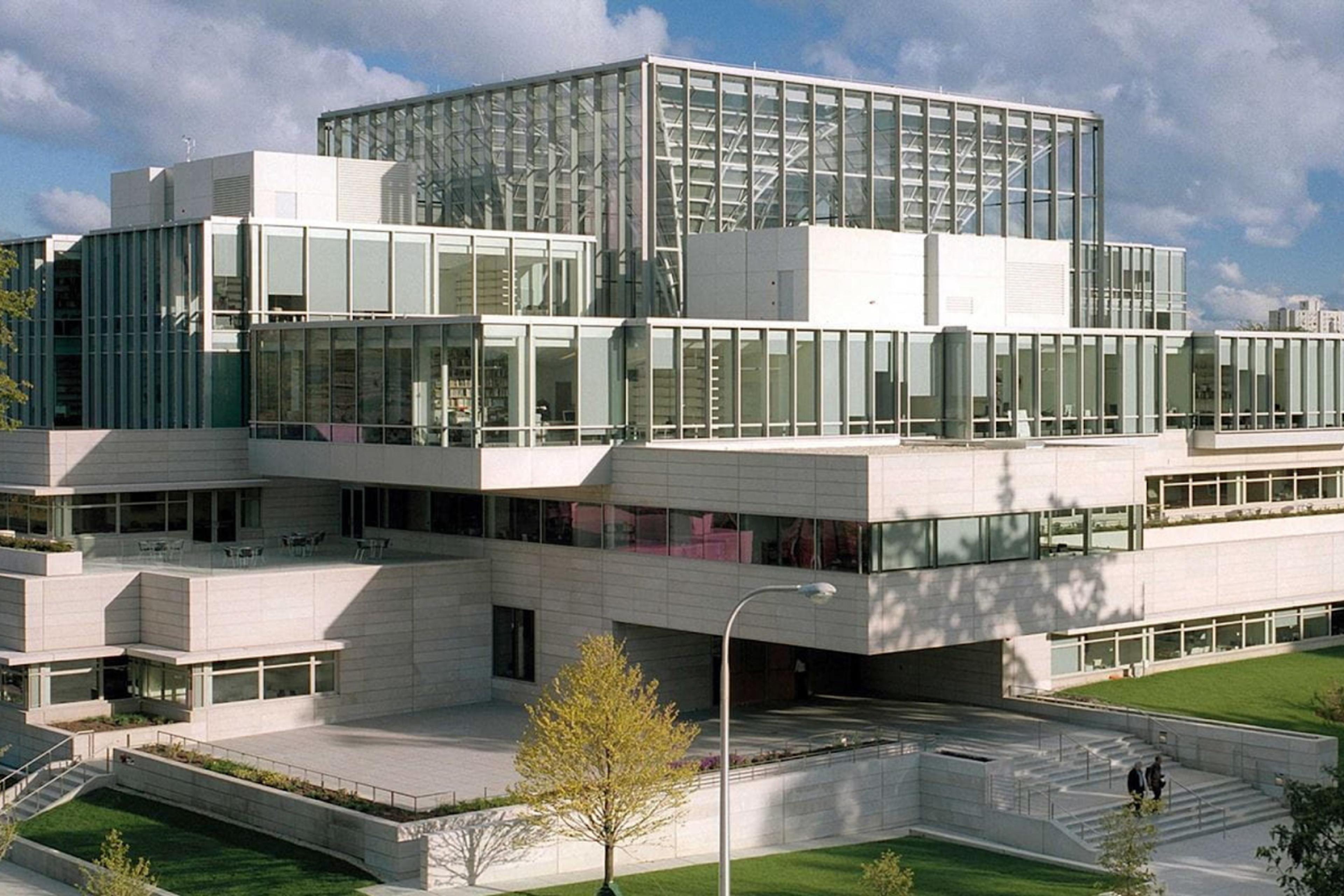
Chicago Booth Scholars Deferred MBA Eligibility
The Chicago Booth Scholars Deferred MBA program is open to applicants who are in their final year of undergraduate studies, including those enrolled in joint bachelor's/master's degree programs, regardless of their major or background. Additionally, any graduate degree student who transitioned directly from undergraduate studies to a master's degree program is eligible to apply.
Students can defer their enrollment for a minimum of two years and a maximum of five years before beginning their full-time studies at Chicago Booth. If, however, students want to continue working after their deferment period, they can choose to enroll in the Evening or Weekend MBA Programs.
Chicago Booth Scholars Deferred MBA Essays
Deferred applicants are required to respond to both short-answer and essay questions that provide insights into their career goals, personal growth, and unique attributes.
Short-Answer Question:
- What do you plan to accomplish after graduation and prior to starting your MBA?
Essays:
- How will the Booth MBA help you achieve your immediate and long-term post-MBA career goals? (250-word minimum)
- An MBA is as much about personal growth as it is about professional development. In addition to sharing your experience and goals in terms of career, we'd like to learn more about you outside of the office or classroom. Use this opportunity to tell us something about who you are... (250-word minimum)
See our Chicago Deferred School Hub at Chicago Booth Scholars Program. as well as our school guide at Chicago Booth—MBA Program and Application Overview. If you’re currently working on your Chicago application, read our Guide to the Booth Essays.
How to Get Into Chicago Booth Scholars: Admit Story
10X Your Chances of Getting Into a Top Deferred MBA Program
Access an in-depth content library just on deferred MBA applications with example applications (essays, resumes, etc.), templates/workbooks, exclusive coaching discount codes, answers to your most challenging application questions, and more. Sign up and get into your dream deferred MBA program - starting as low as $10/month!!
MIT Sloan Early MBA Admission
- Deadline: April 18, 2025
- Emphasis: Engineering, technology (STEM)
- Acceptance Rate (for all MBA applicants): ~14%
- Application Fee: None
This Massachusetts school has an MBA program in very high demand, with a strong emphasis on STEM (science, technology, engineering, and math). If you're interested in a STEM-related business path, this is the place to be. But remember, STEM does not mean anti-social, especially not here; the MIT Sloan MBA program has a down-to-earth and collaborative class profile, so applicants who can prove strong social skills are preferred. Applicants hoping to pursue a career in Product Management or in other technical-related fields have found success at MIT. If that sounds like you, give the MIT Sloan MBA Early Admission program a look.
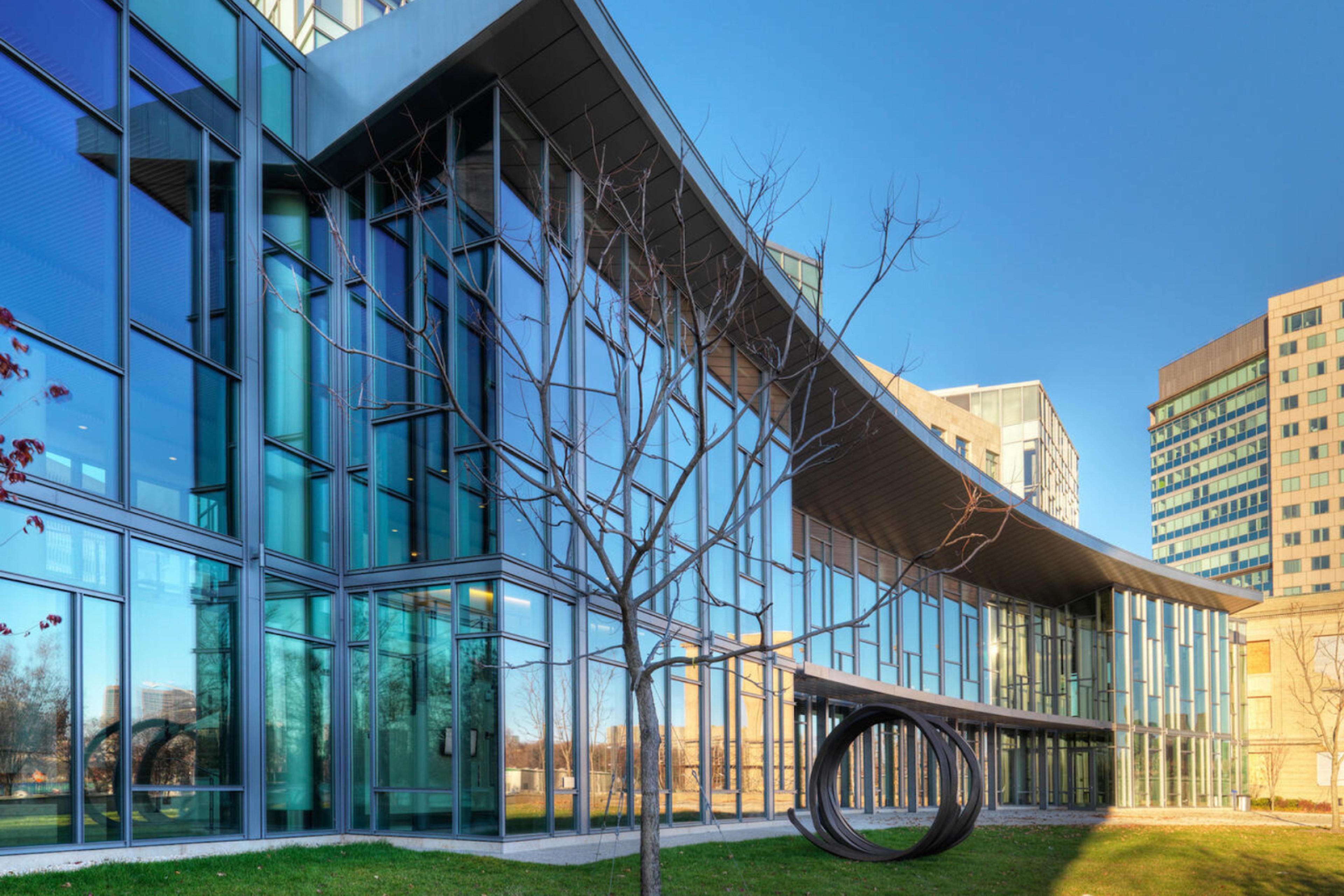
MIT Sloan MBA Early Admission Class Profile
| Total Students | N/A |
| Median GPA | 3.84 |
| Median GMAT | 750 |
| Median GRE | 740 |
| Countries Represented | 25 |
MIT Sloan Early Admission Eligibility
Applicants must graduate between August 2024 and September 2025 to be eligible for the MIT Sloan MBA Early Admission program. Additionally, eligible candidates will not enroll in an MD, JD, or PhD program immediately after completing their undergraduate program, and they must not have had any prior full-time work experience, except for internships or co-op experiences. Graduate students in their final year of a graduate program who graduate within the specified timeframe and meet the stated criteria are also eligible to apply.
The deferred admission period for MIT Sloan’s program can last anywhere from two to five years.
MIT Sloan Deferred MBA Essays
For the MIT Sloan Early MBA application, applicants are required to complete two video questions and are given the option to respond to an additional short-answer question.
- Video Question 1: Introduce yourself to your future classmates. This is an opportunity to showcase your personality and engage with the admissions committee. Videos should adhere to specific guidelines, including being no longer than 1 minute (60 seconds), single take (no editing), speaking directly to the camera, and excluding background music or subtitles.
- Video Question 2: Randomly Generated Open-Ended Question: All MBA Early applicants will be prompted to respond to a randomly generated, open-ended question. This question is designed to assess your communication style and how you express yourself. Applicants are given one minute to prepare a 60-second response.
Optional Short Answer Question:
- How has the world you come from shaped who you are today? For example, your family, culture, community, all help to shape aspects of your life experiences and perspective. Please use this opportunity if you would like to share more about your background. (250 word limit)
For information on the early admission MBA program at MIT, visit MIT Sloan Early Admission Deferred MBA Program: What You Need to Know and MIT Sloan—MBA Program and Application Overview.
Columbia Deferred Enrollment MBA
- Deadline: April 15, 2026 at 12:00 PM ET (Note: Application opens November 2025)
- Emphasis: Finance, leadership, and NYC industry proximity
- Acceptance Rate (overall MBA): ~18–22% (approx. 22%)
- Application Fee: None for current undergrad or eligible grad students
Located in Manhattan, Columbia Business School offers a prestigious finance-focused MBA with access to Wall Street, global corporations, and a rich alumni network. Though historically known for high competition, CBS is increasingly fostering a more collaborative and diverse culture. However, remember that living costs in New York City are notably higher than at most other GSB programs.
Columbia Business School Deferred MBA Class Profile
| Total Admitted Students | 232 |
| GPA Range | 3.11-4.0 |
| GMAT Range | 540-790 |
| Countries Represented | 28 |
Columbia Deferred MBA Eligibility
Students eligible for the Columbia Deferred Enrollment MBA program include those graduating during the current academic year from a bachelor's degree program, as well as students completing a graduate degree. Candidates must have started the graduate degree program directly after completing their undergraduate degree to be eligible for the Deferred Enrollment Program.
After students graduate, they will have two to five years to begin Columbia’s full-time MBA program. Once a student is ready, they can send a letter of intent to Columbia specifying whether they want to enroll in January (16-month program) or August (traditional 20-month program featuring a summer internship).
Columbia Deferred MBA Essays
For the Columbia Deferred Enrollment MBA application, applicants are required to respond to a short-answer question and two essay prompts.
Short Answer Question:
- Immediate Post-Graduation Goal: What is your immediate post-graduation professional goal? (50 characters maximum)
Essay Questions:
- Applying to a deferred enrollment program suggests that your aspirations in the next 2-5 years will include an MBA. Why do you feel you need an MBA to achieve your long-term career goals, and why would you like to pursue your MBA at Columbia Business School? (300 words)
- Contributing to the community is an important part of the CBS experience. Discuss one experience or situation in your undergraduate or graduate career where you feel you contributed to your community and what you learned from the experience. (250 words)
See our Columbia Deferred School Hub at Columbia Deferred Enrollment Program or visit our full school hub at Columbia Business School—MBA Program and Application Overview.
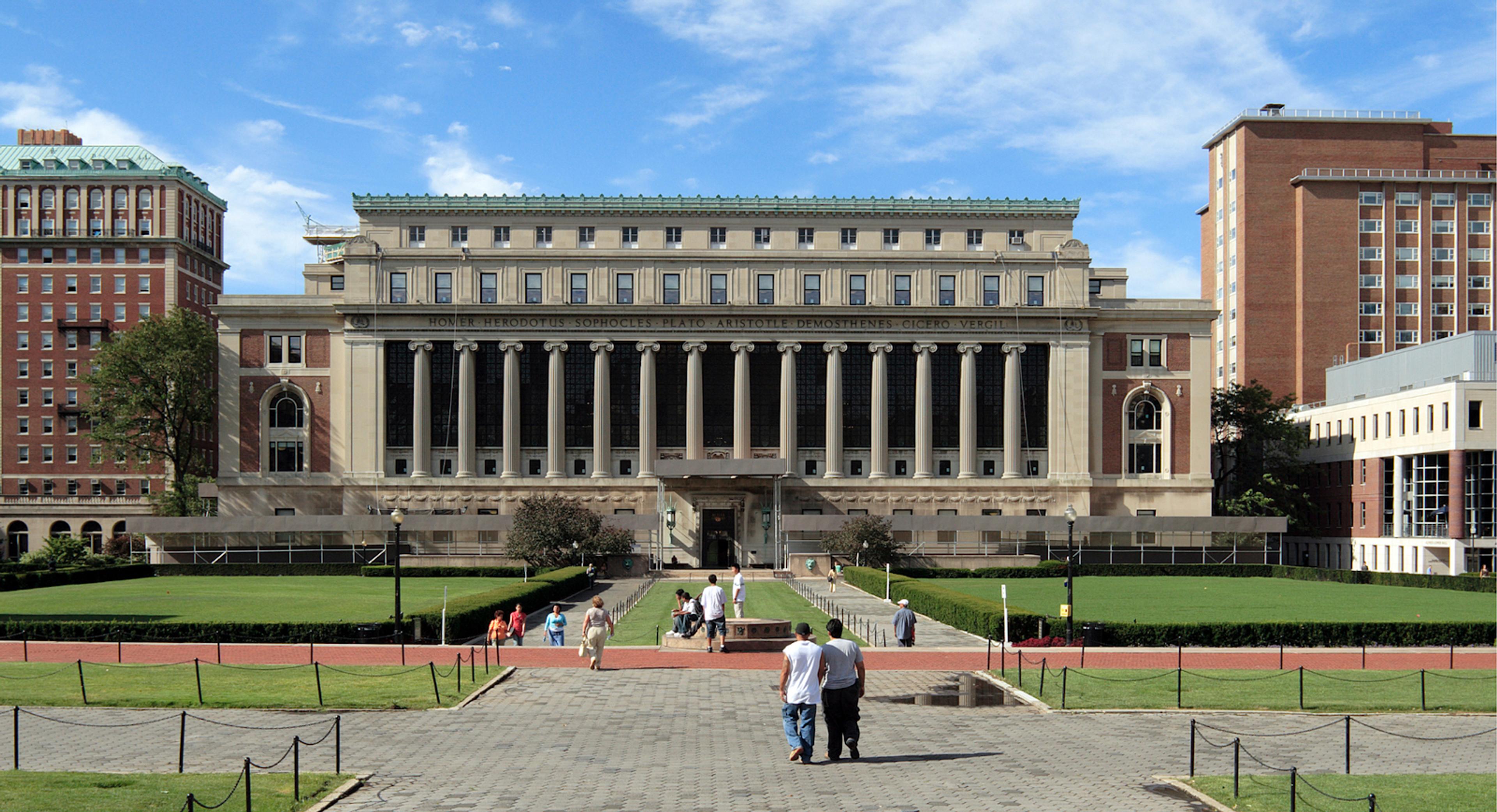
Yale Silver Scholars Program
- Deadlines:
- Round 1: September 10, 2025 → Decision by December 4, 2025
- Round 2: January 6, 2026 → Decision by March 19, 2026
- Round 3: April 14, 2026 → Decision by May 14, 2026
- Emphasis: Leadership development with strong preparation for the nonprofit, public, and social impact sectors; includes a mandatory year-long internship between MBA years.
- Acceptance Rate: The Silver Scholars program admits around 15–17 students each year, representing ~5% acceptance, significantly more selective than Yale’s standard MBA (overall ~28–33%).
- Application Fee: Uses a sliding scale, typically ranging from $125–$250 depending on income.
The Yale School of Management (SOM) comes in lower on the US News’ business school ranking list, but it has the oldest deferred enrollment program on this list, and the Silver Scholars Program only admits (roughly) 5% of all applicants! It's highly competitive but worth attending. Yale SOM remains world-renowned for its global networking opportunities, integrated curriculum, and leadership training. Plus, its exclusivity means it boasts a small class size and a tight-knit community.
It has a longstanding history of sending a disproportionately high (but recently decreasing) number of graduates into the nonprofit industry. Keep in mind that this program begins immediately following your senior year of undergrad.
Yale SOM MBA Class Profile
| Total Students | 339 |
| Median GPA | 3.64 |
| Average GMAT | 720 |
| Median GRE | Verbal: 164, Quant: 166 |
| Countries Represented | 46 |
*Stats for the full-time class, which includes the deferred admits.
Yale Silver Scholars Eligibility
The Yale Silver Scholars Program is tailored for students seeking to enter the full-time MBA program directly from their academic studies, without acquiring full-time work experience. Eligible candidates include college seniors graduating between August 1, 2023, and July 31, 2024, as well as students enrolled in a graduate program immediately following their undergraduate studies. Various special categories, including recent graduates, international students, and those pursuing joint-degree programs, are also considered for eligibility.
Once accepted, students will spend their first year at Yale SOM learning the foundations of management through a robust core curriculum, after which they will be able to work full-time for “one or more” years. Once their full-time working experience is over, students must return to campus for a final year of Yale Elective Courses.
Yale Silver Scholars Essays
Applicants to the Yale Silver Scholars Program are provided with three essay prompts from which to choose, allowing them to share insights into their background, passions, motivations, challenges, and aspirations.
- Describe the biggest commitment you have ever made. Why is this commitment meaningful to you, and what actions have you taken to support it?
- Describe the community that has been most meaningful to you. What is the most valuable thing you have gained from being a part of this community, and what is the most important thing you have contributed to this community?
- Describe the most significant challenge you have faced. How have you confronted this challenge, and how has it shaped you as a person?
Choose the prompt that resonates most strongly with your experiences and passions, allowing you to provide concrete examples that showcase your character and potential contributions to the MBA program. The word limit for each essay is 500 words.
See our full Yale school hub at the Yale School of Management—MBA Program and Application Overview.
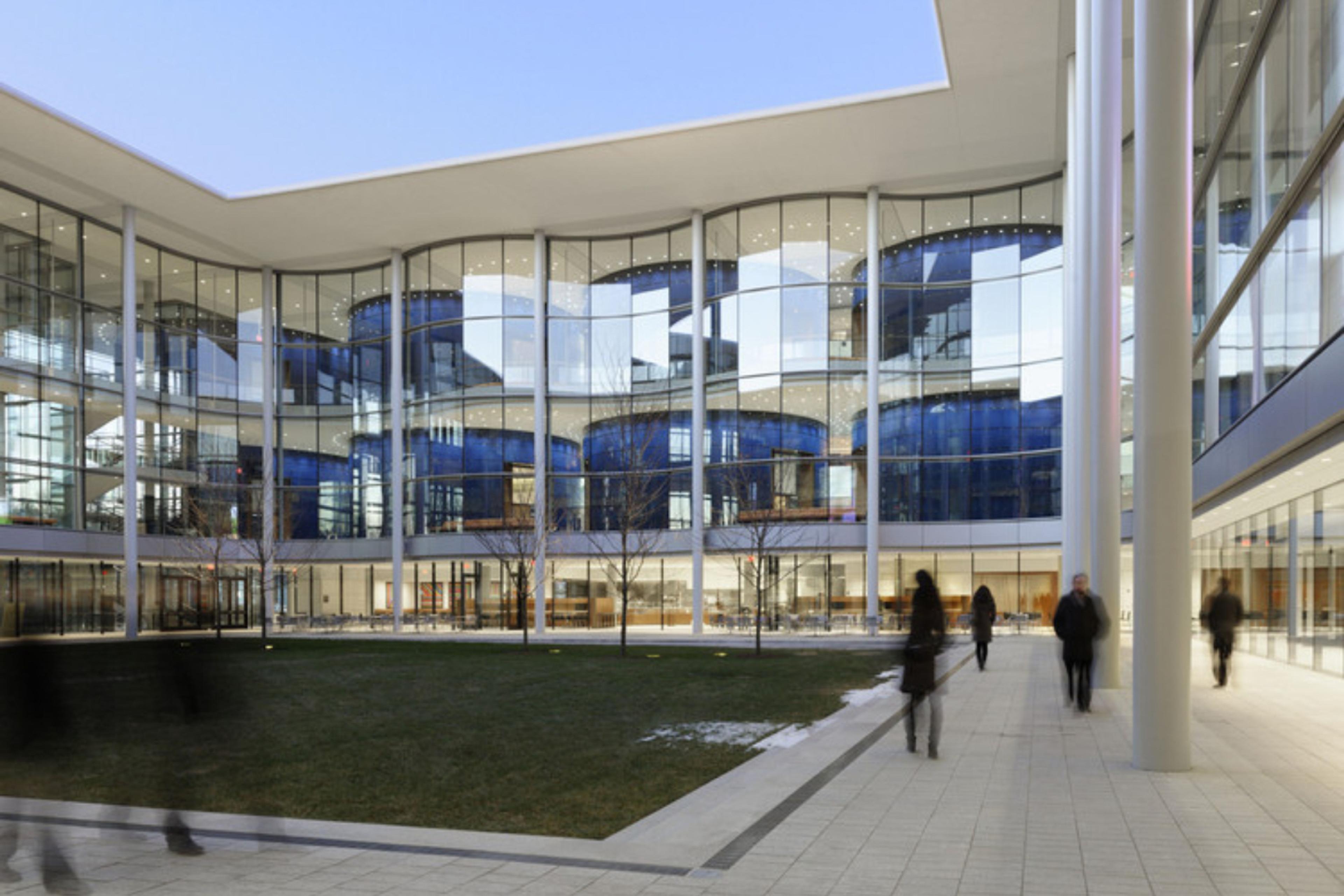
Darden Future Year Scholars Program (FYSP)
- Deadlines:
- Round 1: April 7, 2025
- Round 2: August 4, 2025
- Emphasis: Balanced leadership with a strong focus on communication and modern business skills within a tight-knit, collaborative environment
- Acceptance Rate (overall MBA): ~26–35%
- Application Fee: None
Darden offers a balanced curriculum that incorporates exceptionally modern business practices. Known for outputting great communicators, Darden expects its students to work collaboratively. If you’re Darden-bound, prepare for an intimate and tight-knit learning environment. It's also clear that the Darden admissions team is putting a strong emphasis on its deferred program, so if you are interested in Darden, this program is a great option.
Darden Future Year Scholars Program Class Profile
| Total Students | 92 |
| Average GPA | 3.74 |
| Median GMAT | 720 |
| Median GRE | 324 |
| Countries Represented | 15 |
Darden Future Year Scholars Program Eligibility
Applicants eligible for the Darden Future Year Scholars Program at the University of Virginia (UVA) include bachelor's degree students in their final year of study and full-time master's students who have not held a full-time work position. To apply during the 2025–26 cycle, you must be graduating between October 1, 2024, and September 30, 2025, regardless of whether you begin full-time employment after graduation.
Students can work for two to five years after being admitted. Something to note is that they are not required to decide how long they’ll be working immediately upon admission and will rather be asked by Darden at the beginning of each year whether they plan on matriculating into the program in the fall.
Darden Future Year Scholars Program Essays
For the Darden Future Year Scholars Program application, applicants are required to respond to short-answer questions that provide insights into their experiences, values, and career aspirations.
Short Answer Questions:
- What would you want your classmates to know about you that is not on your resume? (100 words)
- Please describe a tangible example that illuminates your experience promoting an inclusive environment and what you would bring to creating a welcoming, global community at Darden. (300 words)
- At this time, how would you describe your short-term, post-graduate goals in terms of industry, function, geography, company size and/or mission, and how does it align with the long-term vision you have for your career? (200 words)
Read more about the program at Darden at UVA Darden: Future Year Scholars Deferred MBA Program and UVA Darden—MBA Program and Application Overview.
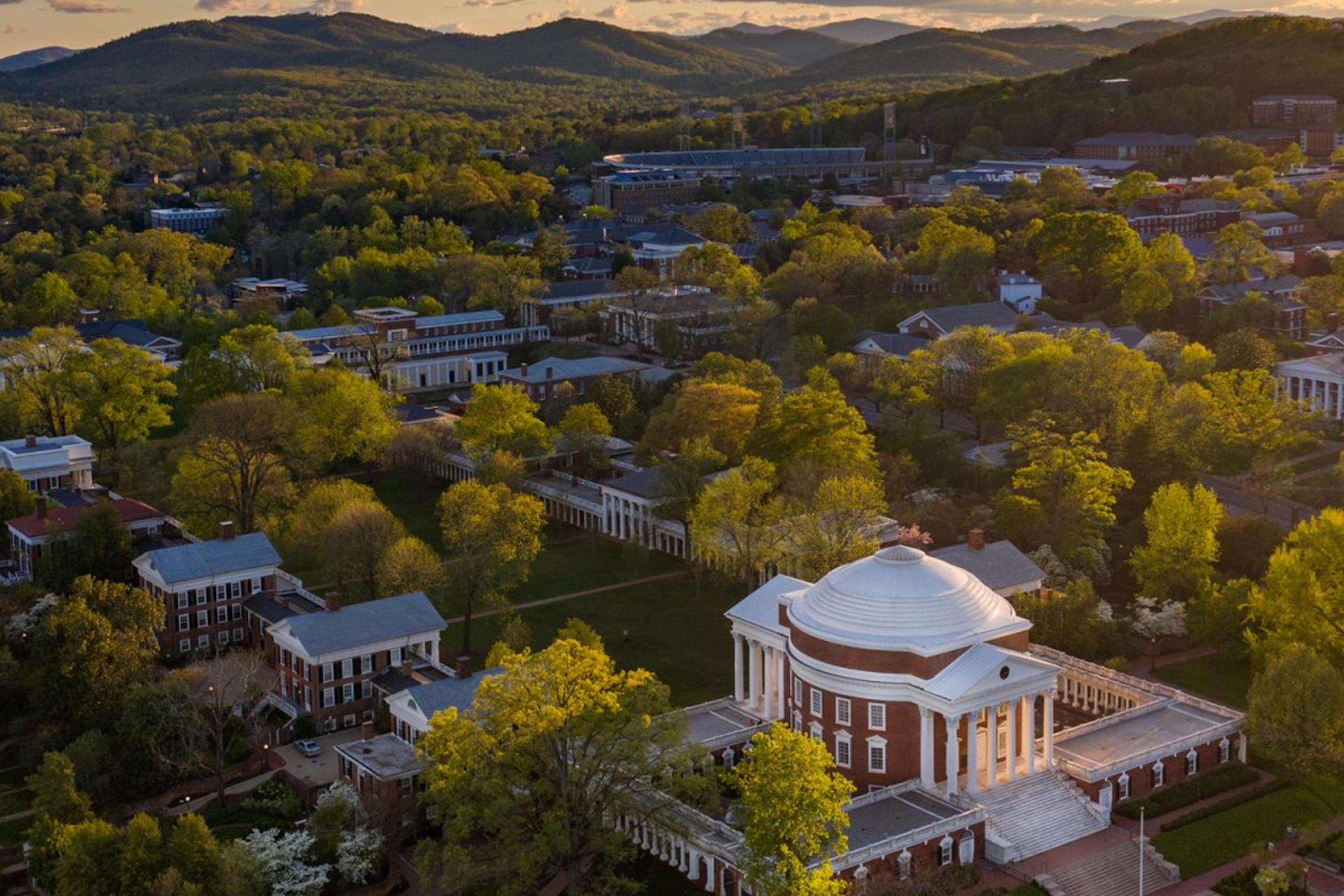
Berkeley Haas Accelerated Access MBA
- Application Deadline: April 24, 2025
- Decision Notification: June 26, 2025
- Emphasis: Balanced leadership development, innovation, and entrepreneurship — aligned with the four Haas principles (“Question the Status Quo,” “Confidence without Attitude,” etc.)
- Acceptance Rate (all MBA applicants): ~13–17%; full-time deferred admits are even more selective.
- Application Fee: $200 (fee waivers may be available)
The Berkeley Haas Accelerated Access MBA program is geared toward UC Berkeley undergraduates or graduates, hoping to return to Berkeley for their MBA. At present, it's not open to non-Berkeley undergrads, but keep an eye on it: we expect that to change at some point in the future. With proximity to Silicon Valley, Berkeley grads are known for being plugged in with all of Northern California's top tech companies and VC firms.
Berkeley Haas MBA Class Profile
| Total Students | 244 |
| Average GPA | 3.64 |
| Median GMAT | 740 |
| Median GRE | Verbal: 162, Quant: 165 |
| Average Work Experience | 5.8 |
| Countries Represented | 39 |
*Stats for the full-time class, which includes the deferred admits.
Berkeley Accelerated Access Eligibility
The Berkeley Haas Accelerated Access MBA program is open to Undergraduate students in their final year, with a graduation date between July 1, 2024, and September 30, 2025. And graduate students in their final year who enrolled immediately after undergrad and have not held full-time employment, also graduating between July 1, 2024, and September 30, 2025
Once accepted, students are allowed to work for two to five years and may choose to return to the MBA at any time. Admitted students are also subject to consideration for Berkeley Haas’s dual MBA degree programs.
Berkeley Accelerated Access MBA Essays
Applicants to the Berkeley Haas Accelerated Access MBA program are required to complete two essays, each with a maximum of 300 words, focusing on personal reflections and leadership aspirations.
- What makes you feel alive when you are doing it, and why?
- What kind of leader do you aspire to be and why?
These required essays offer applicants the opportunity to express their passions and leadership aspirations, providing insights into their personal motivations and future goals. Additionally, the application includes optional sections for applicants to provide context for their achievements and address any relevant information not covered elsewhere.
Read A Guide to the UC Berkeley Haas Accelerated Applicants Deferred MBA Program and visit our Berkeley school hub at the University of California Berkeley Haas—MBA Program and Application Overview.
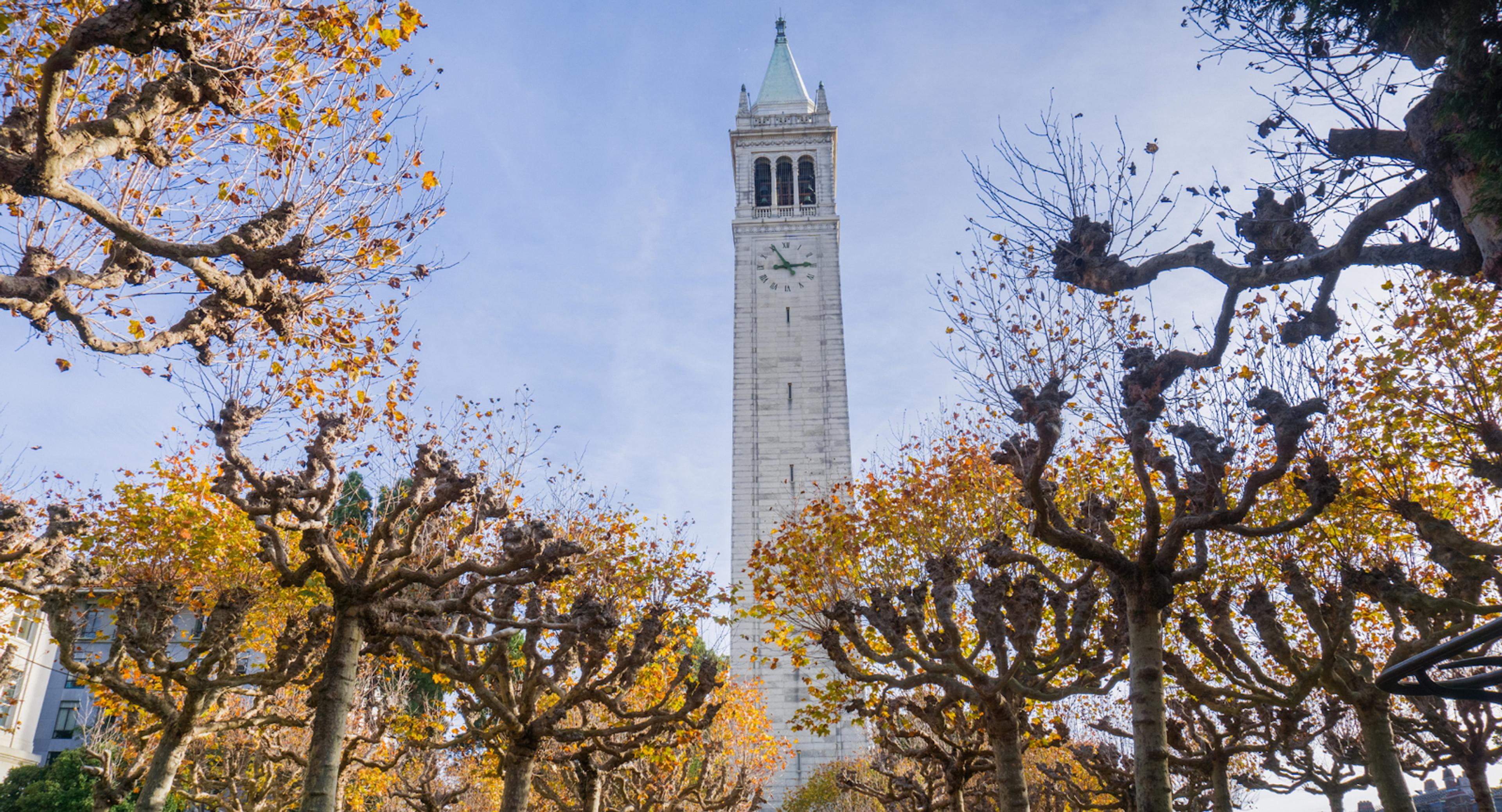
How to Get Into Your Dream Deferred MBA Program
Okay, now we've covered the best DMBA programs. We've briefly touched on the application materials and what each program is looking for. Now, the million-dollar question: how do you get in?
Browse our Free Content
First, visit the Leland Deferred MBA Library for school guides, application tips, and other helpful articles. We are constantly updating it with new articles and insider advice on everything you need to get into your dream deferred program.
Find an MBA Admissions Coach
Second, search for and partner with an MBA admissions coach.
It can be difficult, especially when applying to DMBA programs, to find reliable information out there about the application process. An experienced coach, one who has gone through the deferred application process or who has coached many deferred admits before, can be the difference between earning that coveted admissions letter and not. The right coach can offer the guidance and mentoring you'll need to secure a seat at your dream school. There are over 750 coaches on Leland for individualized career support, as well as MBA admissions counselors, who can help you reach any goal you have. Schedule a call with our team for access to deals, exclusive offerings, custom coach recommendations, and more.
See: The 10 Best MBA Admissions Consultants
Popular Coaching Packages
These are some of our most popular deferred packages, geared toward helping you get into your dream program. Book FREE intro calls with any of these coaches to find out more.
- Deferred MBA Essay Workshopping: Brainstorming & Crafting a Narrative - with Sydney P., Stanford GSB Deferred Admit, BCG
- All-In Deferred MBA Coaching - with Andy P., Professional Admissions Coach, 20+ Years of Experience, Stanford Interviewer
- Deferred MBA Resume Review - with Austin P., Sloan/Kellogg Deferred MBA Admit, LEK Consulting
Not sure if an admissions coach is for you? Check out our article: Are MBA Admissions Consultants Worth it? Ready to partner with the perfect coach? Find them by browsing our world-class MBA admissions coaches.
Read these next:
- Financial Aid Options for Pursuing an MBA Program
- 4 Expert Tips on Paying for Business School
- The 10 Best MBA Admissions Consultants
- 10 Essential Tips for a Successful MBA Application
- 40 Reasons to Hire an MBA Admissions Consultant
FAQs
What is a deferred MBA, and how does it work?
- A deferred MBA lets you apply to a top business school before you start working full-time, usually in your final year of undergrad or a master’s program. If admitted, you defer enrollment for 2–5 years while you gain work experience, then start the full-time MBA later.
Can I apply to a deferred MBA program if I’m in a master’s program now?
- Yes, most programs allow it—but only if you enrolled immediately after undergrad and haven’t worked full-time yet. You need to be graduating between specific eligibility windows (usually between July–September 2025 for this cycle).
Is it easier to get into a deferred MBA program than a regular MBA?
- Not really. The applicant pool is smaller but extremely competitive. You’re being evaluated on future potential, not full-time experience, so you need to stand out with academics, leadership, clarity of goals, and a compelling story.
What’s the difference between a deferred MBA and a traditional MBA?
- Same degree, different timing. In a deferred MBA, you lock in admission early and work 2–5 years before starting. Traditional MBA applicants apply after gaining work experience. The curriculum and class you join are the same.
Do I need a GMAT or GRE for deferred MBA programs?
- Yes, most programs still require a GMAT or GRE. A few allow waivers or exceptions (e.g., Kellogg for Northwestern undergrads), but it’s safest to plan on taking one.









